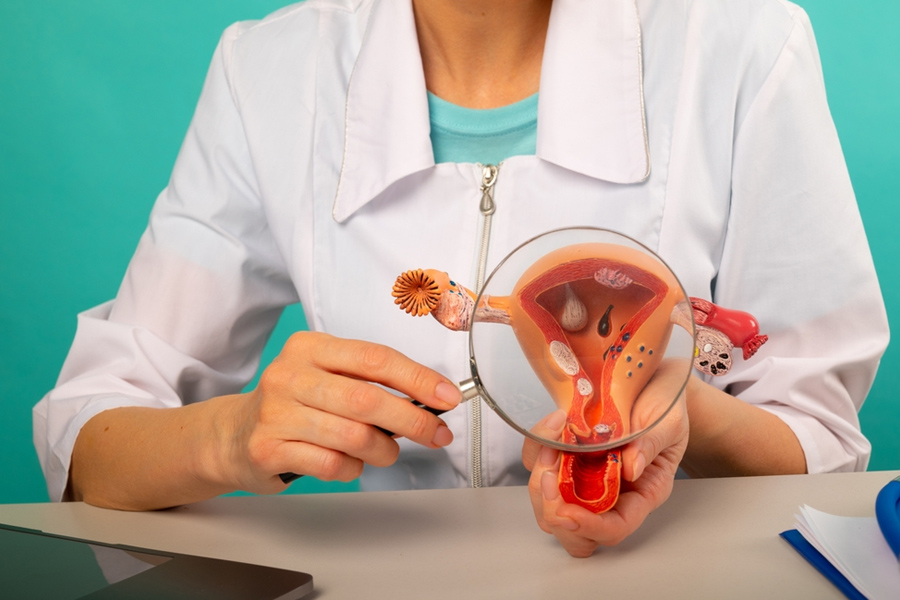-1731561611087.webp)
Korean movies and series have become popular in recent years. From romance and action to thriller and horror, they have successfully captivated audiences with their unique storytelling and genre-spanning versatility. Moreover, beyond their primary plots, many Korean dramas subtly add background story elements that enhance the main storyline and bring real-life issues to the forefront, often normalising life experiences that are often under-represented.
Table of Content:-
One such series is Mr. Plankton, a Netflix limited series. Though primarily following a central storyline, Mr. Plankton thoughtfully weaves in a subplot that explores premature menopause, experienced by its female protagonist. She reveals that she was diagnosed with early menopause at just 28, which got us thinking about whether that is even possible. To decode the same, the OnlyMyHealth team spoke to Dr N Sapna Lulla, Lead Consultant, Obstetrics and Gynaecology, Aster CMI Hospital, Bengaluru.
Also Read: 7 Premature Menopause Symptoms and Coping Strategies You Need To Know
Is Menopause Possible In 20s And 30s?
-1731561987181.jpg)
"Menopause is typically associated with women in their late 40s to early 50s; however, it is indeed possible for some individuals to undergo menopause in their 20s or 30s," said Dr Lulla, adding that this early onset, often referred to as premature menopause or primary ovarian insufficiency, can occur due to various factors, including genetic predispositions, autoimmune disorders, certain medical treatments, or lifestyle influences.
According to her, the implications of experiencing menopause at such a young age can be significant, affecting not only physical health but also emotional well-being and reproductive options.
This is why it is crucial for those experiencing symptoms of menopause at an early age to seek medical advice and support to understand their condition and explore potential treatment options.
A study published in the Annals of Medical and Health Sciences Research indicated that premature menopause affects 1% of women under the age of 40, increasing their risk of a number of health challenges, including premature death, neurological diseases, psychosexual dysfunction, mood disorders, osteoporosis, Ischaemic Heart Disease (IHD), and infertility.
Causes Of Early Menopause

Early menopause can be influenced by a variety of causes, including certain medical treatments such as chemotherapy or radiation and lifestyle factors like smoking.
According to research, the cause of early menopause remains idiopathic, meaning its exact origin is unknown. However, it can occur due to medical interventions such as chemotherapy or surgical procedures like bilateral oophorectomy, which removes both ovaries. Genetic factors, autoimmune disorders, infections, enzyme deficiencies, and metabolic syndromes are also identified as potential contributors to premature ovarian failure. Regardless of its cause, the condition leads to early oestrogen deficiency, which elevates risks for health issues.
Dr Lulla added, “Lifestyle factors can significantly influence the timing of menopause, potentially leading to its onset at a younger age. Various elements such as diet, physical activity, smoking, and stress levels play a crucial role in hormonal balance and overall reproductive health. A diet high in processed foods and low in essential nutrients may disrupt hormonal functions, while regular physical activity is known to support hormonal regulation and mitigate stress. Smoking has also been linked to earlier menopause due to its detrimental effects on ovarian function. Chronic stress can also impact hormonal levels, further accelerating the menopausal transition.”
Also Read: Premature Menopause: Understanding Health Risks And Symptoms To Watch Out For
Symptoms Of Early Or Premature Menopause
Premature menopause can lead to a variety of symptoms and signs that may alert individuals to its onset. Common indicators include:
- Irregular or missed menstrual periods may become less frequent or stop altogether.
- Hot flashes
- Night sweats
- Mood swings, similar to those associated with natural menopause
- Vaginal dryness
- Difficulty sleeping
- Changes in libido
It is essential to recognise these signs early, as they can significantly impact overall health and well-being, prompting the need for medical evaluation and potential intervention, advised Dr Lulla.
Early Menopause Diagnosis And Treatment Options
-1731562035586.jpg)
While symptoms can help identify early or premature menopause, a combination of clinical evaluation and laboratory tests can support your diagnosis more accurately. Healthcare providers typically begin by assessing the patient's medical history, including menstrual patterns and any accompanying symptoms such as hot flashes or mood changes.
A physical examination may also be conducted. To confirm the diagnosis, blood tests are commonly performed to measure hormone levels, particularly follicle-stimulating hormone (FSH) and estradiol. Elevated FSH levels, along with low estradiol levels, can indicate diminished ovarian function, which is characteristic of early menopause.
In some cases, additional tests such as thyroid function tests or karyotyping may be recommended to rule out other conditions that could affect menstrual cycles and hormone levels.
To address these challenges of early menopause, various treatment options are available, including hormone replacement therapy (HRT) to alleviate physical symptoms, lifestyle modifications such as diet and exercise to promote overall health, and counselling or support groups to help manage emotional well-being. shared Dr Lulla, concluding that these approaches can be tailored to individual needs, providing a comprehensive strategy for managing the impacts of early menopause.
Image credit: Instagram/Netflix Korea
Also watch this video
How we keep this article up to date:
We work with experts and keep a close eye on the latest in health and wellness. Whenever there is a new research or helpful information, we update our articles with accurate and useful advice.
Current Version
